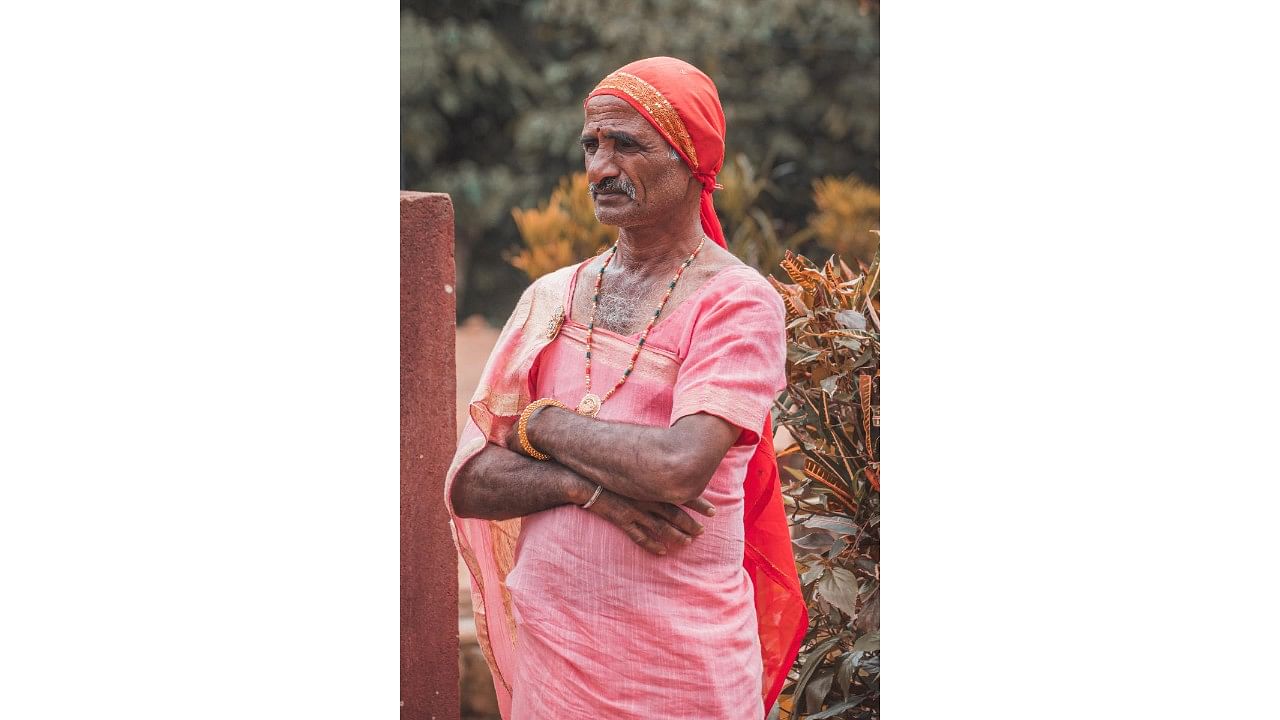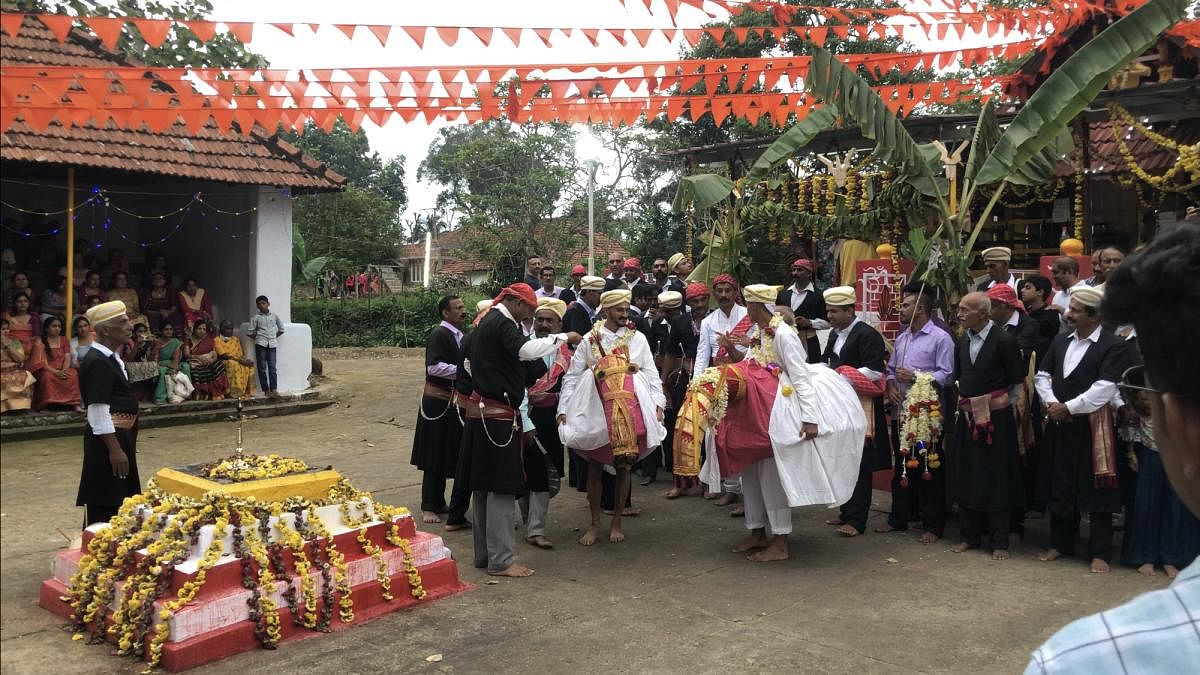

Every year, some parts of south-east Kodagu see the celebration of the festival Boad namme. Namme means festival in Kodava language. Boad namme is usually celebrated in the areas that have a temple of Bhadra Kaali.
During the festival, people disguise themselves and visit houses in the village. This is called boad kali in general and can be of different forms. The most common form is that of cross-dressing, where men and boys dress as women and girls.
There is the bandu kali form where men apply wet, sticky mud on themselves. There is vadda kali where a man dresses as a vadda, a digger of wells and tanks. Some wear gaarudi gombes, a type of gigantic dolls with large heads made from wood and papier-mâché, with holes for eyes, while others don body paint and assume puli vesha (tiger form).
Dhol paat singers enter a house’s nellakki nadubade (the hall with the household prayer lamp), followed by the boad performers. People throw money at the tiger dancers who pick it up in their mouths while dancing.
The horse and the woman
The following day, a teenage boy wears a horse frame and is called a kudure. Another small boy is dressed in red sari and is called a choole. The kudure is a form of Shiva (Hara) while the choole is a form of Mohini (Hari).
Just like Vishnu takes the female form of Mohini, the enchantress of demons, the choole is a male who dresses up as a female. Thus, cross-dressing is part of the festival.
Men from the Panika community perform the theray at this temple every year. They carry a large, white parasol with a mask on top.
Bonda was known as Bonda Moonoor okka, or Bonda 300 clans. It was an ancient village inhabited by 300 clans which were split into the modern villages of Bilugunda, Nalvathoklu and Hoskote.
The festival is held in mid-May. Clans of Bilugunda and Nalvathoklu villages take turns to send a kudure and a choole to the temple on a rotation basis every year. These are dressed up in the houses of the clan.
Songs and a race
This year, it was the turn of the Mandepanda clan of Bilugunda and the Nellachanda clan of Nalvathoklu to send a kudure and a choole. The kudure and the choole from both villages come in a procession and meet at a field, and then at the temple. Both the kudures will have a brief race.
If someone dies in a clan, that clan or family cannot participate in the ritual for a certain period. When this happens, other families of the same village share the responsibility. The traditional dudi paat is sung before the kudure and the choole procession starts.
There is a saying in the Kodava language: “The kudure raises at Kunda, the kudure falls at Parana”. Hence, the first Boad festival of the year is at Kunda village and the last is at Parana.